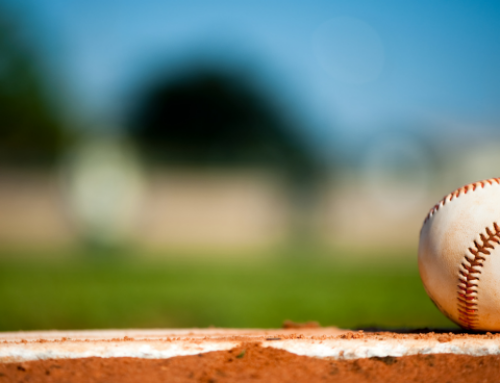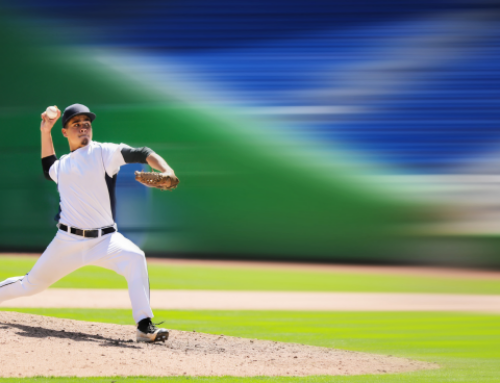Develop Major League Fielding Fundamentals With a Baseball Pitchback
Pitchbacks are effective tools for developing outstanding throwing skills, agility, reflexes, coordination and fielding fundamentals. A pitchback can be set up in your backyard or at the local playground to provide hours of intense defensive drills at an affordable price.
Pitchbacks generally come in two forms: adjustable and multi-sport.
Adjustable
This form allows you to change the angle of the net, so you can work on ground balls or, if you’re feeling brave, fire some heaters to get line drives bounced back at you. You have to stop occasionally and adjust the net to change the angle of the ball coming back. But you can test out more angles than with the multi-sport version.
Multi-Sport
The multi-sport offers two angles at the same time. A direct throw results in a ground ball or line drive, depending on the speed. A throw at the bottom of the pitchback sends the ball into the sky for a pop-up. This is great for athletes who want variety in their drills without having to take a break.
Pitchbacks vary in price, but are generally within the range of $20 to $90. Most sporting goods stores carry them or can easily order one for you. Online stores carry a wide variety as well.
Whichever version you use, it’s important to keep moving. Throw the ball at different angles to work on side-to-side movement [agility], and throw it hard to develop superior reflexes.
Baseball is a long game, and it requires long practices. You have to go through hundreds of game-like repetitions to prepare for that speedy ground ball or soaring pop-up in the bottom of the ninth with two on and two out. Will you get in front of the ball and make the game-winning play? Work on your fielding fundamentals with the pitchback so you’ll be prepared.
When you’re practicing with your new pitchback, charge ground balls like Cardinals SS Skip Schumaker.
Charging Ground Balls With Skip Schumaker
- Stay low
- Field the ball outside of glove-side leg
- Shift your weight to opposite leg and throw the ball
- Avoiding bare-handing a ground ball
RECOMMENDED FOR YOU
Develop Major League Fielding Fundamentals With a Baseball Pitchback
Pitchbacks are effective tools for developing outstanding throwing skills, agility, reflexes, coordination and fielding fundamentals. A pitchback can be set up in your backyard or at the local playground to provide hours of intense defensive drills at an affordable price.
Pitchbacks generally come in two forms: adjustable and multi-sport.
Adjustable
This form allows you to change the angle of the net, so you can work on ground balls or, if you’re feeling brave, fire some heaters to get line drives bounced back at you. You have to stop occasionally and adjust the net to change the angle of the ball coming back. But you can test out more angles than with the multi-sport version.
Multi-Sport
The multi-sport offers two angles at the same time. A direct throw results in a ground ball or line drive, depending on the speed. A throw at the bottom of the pitchback sends the ball into the sky for a pop-up. This is great for athletes who want variety in their drills without having to take a break.
Pitchbacks vary in price, but are generally within the range of $20 to $90. Most sporting goods stores carry them or can easily order one for you. Online stores carry a wide variety as well.
Whichever version you use, it’s important to keep moving. Throw the ball at different angles to work on side-to-side movement [agility], and throw it hard to develop superior reflexes.
Baseball is a long game, and it requires long practices. You have to go through hundreds of game-like repetitions to prepare for that speedy ground ball or soaring pop-up in the bottom of the ninth with two on and two out. Will you get in front of the ball and make the game-winning play? Work on your fielding fundamentals with the pitchback so you’ll be prepared.
When you’re practicing with your new pitchback, charge ground balls like Cardinals SS Skip Schumaker.
Charging Ground Balls With Skip Schumaker
- Stay low
- Field the ball outside of glove-side leg
- Shift your weight to opposite leg and throw the ball
- Avoiding bare-handing a ground ball












